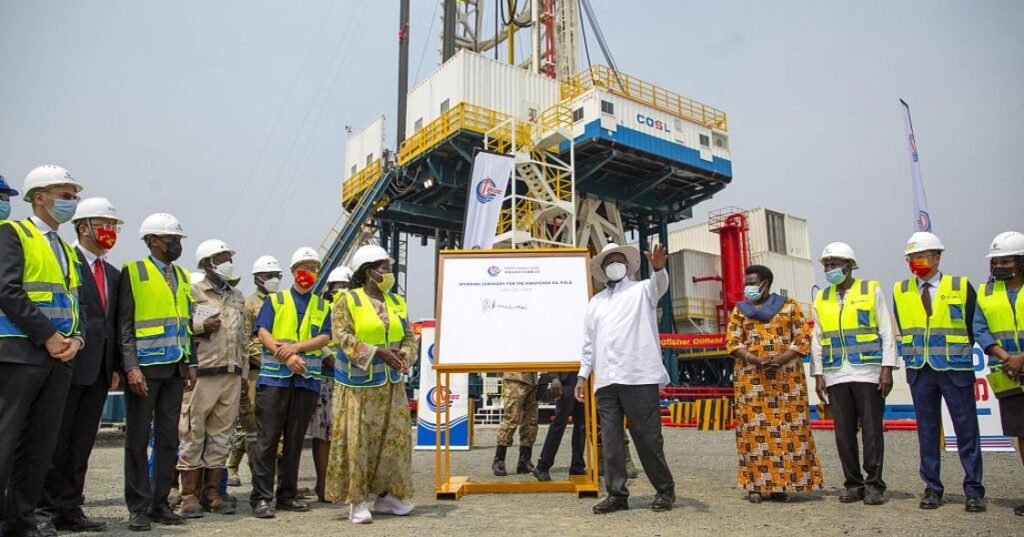
Uganda’s aspirations to become an oil-producing nation have long been in the making. With the discovery of commercial oil reserves in the Albertine Graben nearly two decades ago, the country embarked on a journey towards energy self-sufficiency and economic independence.
However, the timeline for oil production, once expected to begin much earlier, has been pushed forward to June 2026!
The delay raises pressing questions about Uganda’s energy future, the sustainability of its oil ambitions, and the potential for diversification into renewable energy.
Oil Infrastructure: Key Projects and Delays
The journey towards oil production in Uganda is intertwined with the development of key infrastructure, including the refinery and the East African Crude Oil Pipeline (EACOP).
While the government remains optimistic, announcing a revised timeline of June 2026, there are concerns about whether the necessary infrastructure will be fully ready by that time.
Currently, the Kingfisher and Tilenga oil projects, located in Kikuube, Bulisa, and Nwoya districts, have made significant progress, with over 100 wells drilled by international oil companies CNOOC and TotalEnergies.
However, despite this progress, the crude oil refinery, which will process 60,000 barrels per day, is lagging behind schedule. As of now, Uganda has finalised a deal with UAE-based Alpha MBM Investments LLC for the refinery’s construction, but the timeline for its completion remains uncertain.
The refinery project, crucial to Uganda’s self-sufficiency, is designed to reduce reliance on imported fuel. However, until the refinery is operational, Uganda will likely have to export its crude oil, relying on the pipeline, which could also take several years to become operational.
Sustainable Energy in Uganda: Striving for Balance
As Uganda sets its sights on becoming a major oil producer, there are growing discussions around the sustainability of such ambitions.
Will Uganda’s heavy dependence on oil extraction detract from its long-term goals for sustainable energy?
While the country’s oil reserves represent a significant economic opportunity, there is a crucial need for energy diversification to reduce environmental impact and ensure a balanced energy future.
Uganda is a nation blessed with abundant renewable resources, including hydro, wind, and solar energy. There is an opportunity for the government to adopt a balanced energy approach that harnesses both fossil fuels and renewable resources.
The development of renewable energy could help Uganda build resilience against fluctuating oil prices and global energy trends, fostering a more sustainable energy ecosystem.
Government’s Commitment: What Does June 2026 Hold?
Despite the challenges, the Ugandan government remains resolute in its commitment to meet the new deadline for oil production by June 2026.
According to Frank Mugisha, assistant commissioner at the Ministry of Energy and Mineral Development, the government has assured citizens that there will be no further extensions to the timeline.
However, concerns remain about the completion of the refinery by that date, which will determine how much of Uganda’s oil can be processed domestically.
The government has already taken significant steps by enacting laws and regulations to guide the oil sector, which will hopefully foster transparency, attract investors, and streamline the development process.
Yet, the question remains: will Uganda’s infrastructure be fully ready to handle oil production and refining by the revised timeline?
The Road Ahead: Opportunities and Challenges
The stakes are high as Uganda aims to secure its place in the global energy market. The country’s oil reserves could be a major driver of economic growth, job creation, and energy security. However, the delays in key infrastructure projects could stall the full realisation of this potential.
Environment, Social and Governance (ESG)
Furthermore, Uganda’s future as an oil exporter should not be at the cost of its environmental and sustainable energy goals. As the government works to accelerate oil production, it must also explore avenues for green energy, ensuring that Uganda remains a strong player in both traditional and renewable energy markets.
Uganda’s oil ambitions are poised to transform its energy landscape, but there are still many obstacles to overcome.
With the June 2026 deadline fast approaching, there are many questions surrounding the readiness of the infrastructure, especially the refinery.
While oil production could be a game-changer for the country’s energy independence, Uganda must strike a careful balance between oil extraction and the adoption of sustainable energy practices.
As the country moves forward, it will be critical to ensure that the benefits of oil development align with the long-term vision of a more diversified, resilient, and sustainable energy future.
